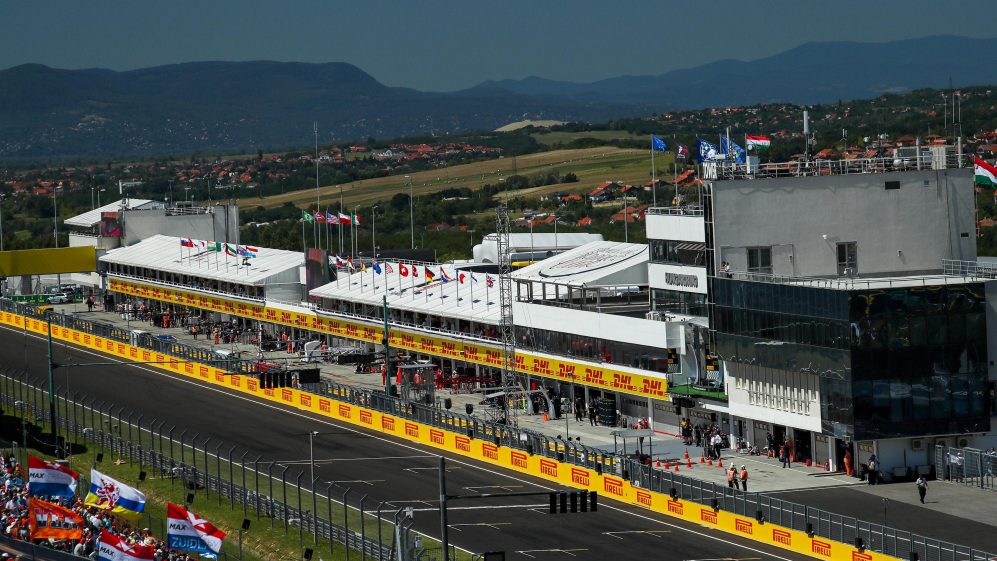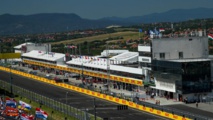He expected only a few people from both countries to come together for a picnic on the border on August 19, 1989, the retiree said recently.
The event was initiative by Hungarian civil society activists and backed by the Pan-European Union, a movement that supported underground civil rights groups in Communist countries.
"Refugees came instead of the delegations," said former Hungarian border officer Arpad Bella, who was also on duty on that day.
Hundreds of citizens from Communist East Germany came running over meadows and a street, towards the gate.
The five Hungarian border guards each carried five rounds of munition in their handguns, but Bella ordered them to not resist the onrush.
"I was afraid for my men and for these citizens of the German Democratic Republic," Bella remembers.
Soon, more than 600 East Germans had pushed through the gate.
These women, men, fathers, mothers and children rejoiced when they reached the Austrian side.
They shouted "freedom, freedom!" Goeltl said.
The exodus on that day helped to build pressure that led to the downfall of East Germany.
Only 12 weeks after the so-called Pan-European Picnic, the Berlin Wall that stood between East and West Germany came down.
Communist Hungary played a key role in this sequence of events. The country's reform-oriented government had lifted travel restrictions for its own citizens already in 1988 and it had started dismantling its border security installations - the Iron Curtain - in spring of 1989.
Hungary was a popular vacation destination for East Germans, and an increasing number of them started thinking about using a trip there to flee to the West.
In August of 1989, flyers appeared in Hungary to advertise a picnic near the Austrian border that would include an official brief official opportunity to cross between the two countries.
As a result, many East German tourists in Hungary got into their rickety Trabant cars and moved towards the border.
However, they faced a problem: The permit to leave to Austria did not apply to them. Hungarian authorities at that time were still obliged to prevent such flight attempts. East Germans who were caught were to be handed over to the German Democratic Republic.
Marlies and Bernd Grunert were among those who decided to try to leave their country via Hungary anyway.
The teacher and her dentist husband from the town of Kemberg took along their children, who were four and seven years old at the time, without telling anyone of their plans.
"Even our children did not know what were about to do," Bernd Grunert said recently.
On their trip that took them through Czechoslovakia and Hungary, they made sure to avoid raising suspicion by leaving any tell-tale signs of a flight plan behind.
They were without a compass, a list of telephone contacts and without their education documents when they reached the Hungarian-Austrian border.
They first attempted to cross one day before the Pan-European Picnic but were rebuffed by Hungarian officers, who did not detain them but merely told them to leave the area.
"We were so intimidated and rattled that we did not dare to come to the picnic," the 61-year-old dentist said.
When they heard about the mass flight that had taken place on the 19th, they initially felt defeated but decided to give it a second try one day later.
On August 20, they drove up to the border and jumped out of their car at the edge of a forest.
When they reached the border fence, they cut it open with pliers and slipped through to the other side.
"We managed to get across safely," said 59-year-old Marlies Grunert.
At that time, many Austrians in the Burgenland region near Hungary helped to care for the East Germans who arrived with just the clothes on their backs, and some Austrians even scouted the local forests to guide refugees across the border.
However, as the Iron Curtain was already fraying, Hungarian authorities only briefly detained these guides when they caught them.
A few weeks after the Pan-European Picnic, Hungary opened its borders for good in early September. Some 15,000 East Germans crossed within the first 72 hours.
Hungary let them through with the quiet approval of Russian leader Mikhail Gorbachev.
Years later, Gorbachev met Goeltl and Bella at a commemorative event.
"He shook our hands and did not let them go for a long time," Goeltl said.
--------------------------------------------------------------------------------------------









 Home
Home Politics
Politics











